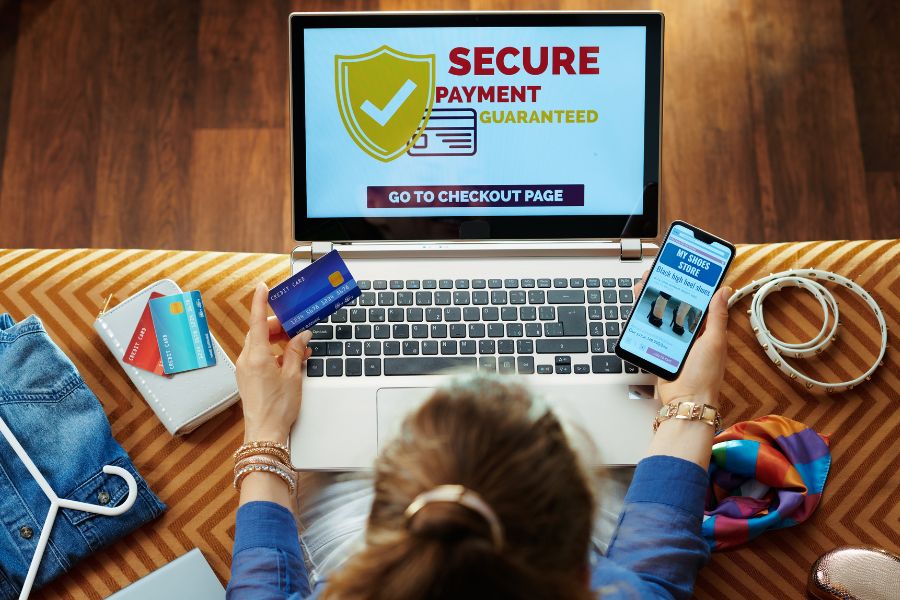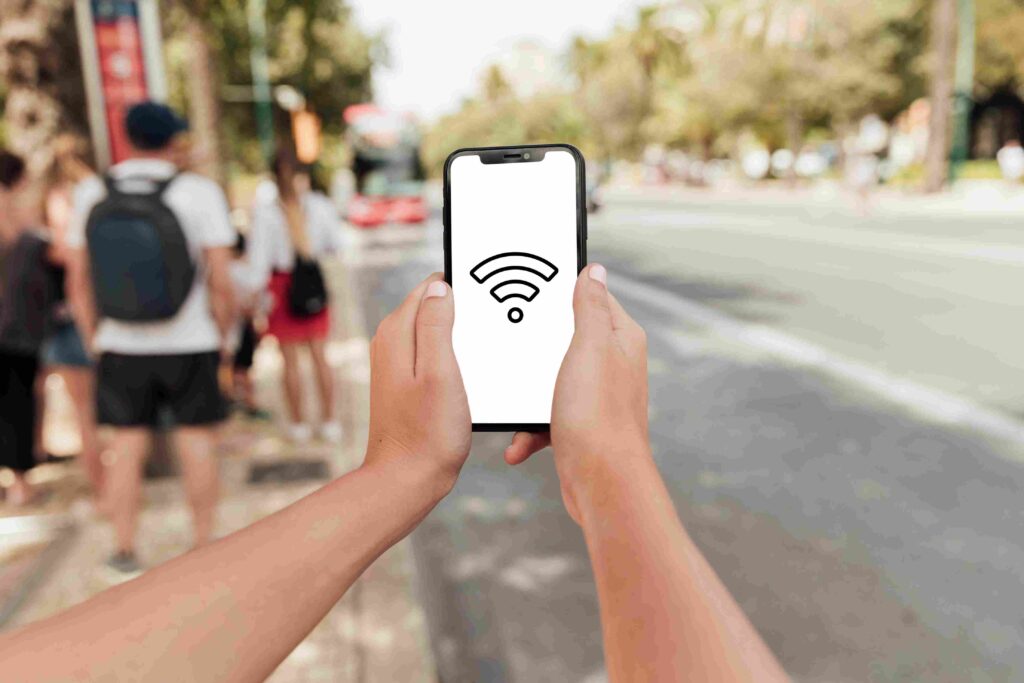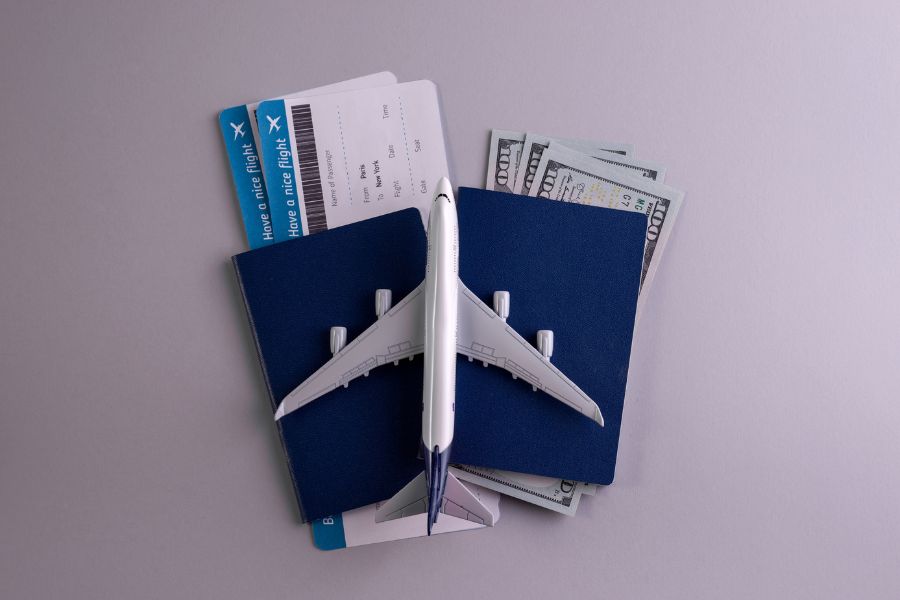Since the invention of the internet, and more lately since the COVID-19 pandemic of 2020, working from home (WFH) and indeed working remotely has become commonplace for certain white-collar professions.
Before Covid, WFH used to be something of a novelty and a bit of a treat for employees, perhaps they were given special dispensation to stay away from the office due to caring for a poor family member or maybe they had to work on a confidential project away from the eyes of colleagues.
But new hires amongst the Gen Z and even millennial demographics now expect to be able to WFH for at least half of the working week as a matter of course.
Employee vs Freelancer
If you’re an employee your boss dictates when and where you work, in general. However, freelancers in certain professions often become digital nomads, working from wherever in the world suits them. Graphic designers, accountants, copywriters, social media marketers and others who can work from anywhere do so – simply because they can.
Indeed, the only restriction to where a digital nomad works is often down to time zone availability – if you had Australian clients, it probably wouldn’t be a great idea to work from the UK or Europe unless you only like to be awake in the dead of night, for example.
As a result, digital nomads usually settle in temperate climates according to seasons, and/or favor cheaper places to live than where their clients are based. Imagine an accountant charging, say $75 per hour to a client in Vicksburg, Mississippi – they get a lot more spending power if they’re using that money on living expenses in Vietnam rather than back in the US.
Some freelancers move to the more temperate parts of Southern Europe for the winter months, then migrate northwards in the summer to avoid the heat – Rome in winter then Reykjavík for the summer!
You only have to navigate your way around visas and work permits, but many countries, such as Spain and Portugal, are now granting special long-stay visas for digital nomads who earn their money abroad – so long as they spend it in their host nation.
Staying Safe Online

Source: Canva Pro
There’s always a downside to everything of course, and aside from dealing with travel documents, where to pay taxes, medical insurance, and such matters, there’s the issue of online security.
The more often you’re online, especially if it’s from unsecured Wi-Fi hotspots, the higher the chances that internet baddies are going to target your connected device to steal your financial information and passwords, etc.
This is where a virtual private network – a premium VPN – comes into its own.
Virtual private networks are simple concepts that solve complex problems of digital nomads. A VPN client is downloaded as a browser extension to whatever device first connects the user’s device to an encrypted ‘middleman’ or intermediary server before in turn connecting to the requested online service.
This encrypted server then conceals the internet protocol (IP) address of the VPN user’s actual location and also cloaks the person’s identity – even from their internet service provider (ISP).
This encryption means that the VPN user simply can’t be identified or located. Hackers tend to try to prey on easy targets, and if an IP address is encrypted and anonymous, they’re likely to move along to someone less secure.
Taking Precautions on Public Wi-Fi

VPNs come with differing levels of service. The free versions always allow you to cloak location and encrypt your connection.
Their servers often carry advanced security features so that if you connect to a public Wi-Fi hotspot that has been set up by a hacker to trap the unwary, the VPN will detect any potential traffic of malware or spyware and disconnect the device before any harm can be done.
Premium versions of VPNs usually also allow you to choose to appear to be connected from a different part of the world from your actual location – which can help save money when online shopping and also sidestep geographical streaming restrictions from popular entertainment providers.
If you want to access your Netflix account from Europe, you’d be blocked by the platform’s stateside server – but using a VPN you can be watching as if you were at home within a couple of minutes.
Backing Off the Throttle
Whether you’re settled down in one place with a family and a small business, perhaps working from home (WFH) or you graft from the road as a digital nomad, data throttling is still an issue that can hinder your online activities.
The term ‘throttling’ is used when a customer’s ISP slows down a person’s data transfer rate to a crawl because they might be using an excessive amount of traffic on their internet account. This can be especially true for those who travel extensively and rely on 4G or 5G cellular signals to access the web.
In either case, if you go over your ISP’s ‘fair usage’ policy, they can slow your internet connection so that it’s effectively unusable. Then you have to wait until the next monthly billing renewal for it to go back to normal, or indeed expensively upgrade your contract to a higher connection speed.
Even some customers with Fiber to the Home (FTTH) can be throttled despite paying a premium for top-speed internet connections. Those folks still relying on copper wire to bring their connection down the old landline telephone cables will more likely be throttled first.
Another reason for throttling is when local events cause an anticipated surge of data traffic in a given area. For example, this might be due to a small town’s soccer team making it through to a national competition, so everyone in that locality is going to be streaming the event on their TVs and mobile devices.
In that case, ISPs simply slow down the data connection to a set of IP addresses in a geographical location to prevent an outage on their networks.
Whatever the reason, using a VPN can sidestep throttling by any ISP because the imposed slowdowns are determined by IP address. If your VPN shows that you’re logging on to the web from an area unaffected by blanket throttling, it will avoid the restriction.
Alternatively, if you’re a household streaming, gaming, and WFH guzzling gigabytes of data, using a VPN will cloak your account as well as your location. Again, if your ISP doesn’t know who or where you are it can’t keep throttling your connection. Problem solved!
Cheaper Flights and Hotel Rooms

Source: Canva Pro
Let’s say you’re a digital nomad search engine optimization (SEO) specialist spending the winter in southern Spain, but you need to fly from Malaga to Michigan to visit a poor relative back in the USA.
You’re very busy setting up, say, an Orca SEO extension for your stateside client based in Wisconsin. So you decide to kill two birds with one stone and visit both your client and your family member on the same trip home.
If you visit a flight and accommodation reseller site as a digital nomad, the artificial intelligence (AI) algorithms on such portals immediately check three things – your purchase history, your current location, and the device you’re using to access the currently connected session.
Malaga is a relatively wealthy ‘touristy’ part of the world, and if you’re a freelance graphic designer accessing the web from a smart new MacBook Pro – the AI at flights.com or whatever is going to ping ‘wealthy person!’ in its little tin head – then display a higher price for the flight you’re seeking.
However, if you log on to the internet via a VPN, you could choose to be situated not in Malaga but in Mexico – a less wealthy area – and what’s more, your account and your device’s brand and nature will be cloaked. Those pesky bots no longer assume you’re rich, and prices for flights and hotels come tumbling down.
Indeed, you could even choose a USA-based IP address, then you’d be offered to pay in $USD rather than Euros – you always get a better exchange rate via a credit card transaction than you do from a ticket reseller.
Safeguarding Your Client’s Commercial Confidentiality
Last but not least, if you’re a freelancer working for a variety of clients, and your email gets hacked when you’re working from an insecure internet connection somewhere rural and ‘basic’ – not only can your data be hacked, but potentially confidential emails and content belonging to your corporate clients could also be compromised.
You might even have access to your client’s CRM portal. Imagine the consequences if that were to be hacked by malicious criminals for nothing other than causing havoc.
In that case, not only would your credit card get misused, and your socials cloned mischievously, but your client could potentially sue you for any loss of business caused by your cyber-negligence.
All in all, if you want to stay safe online, save money while traveling, avoid data slowdown restrictions, keep your reputation as a professional intact, and even access your favorite Netflix shows from abroad, a VPN is definitely the way to go.






